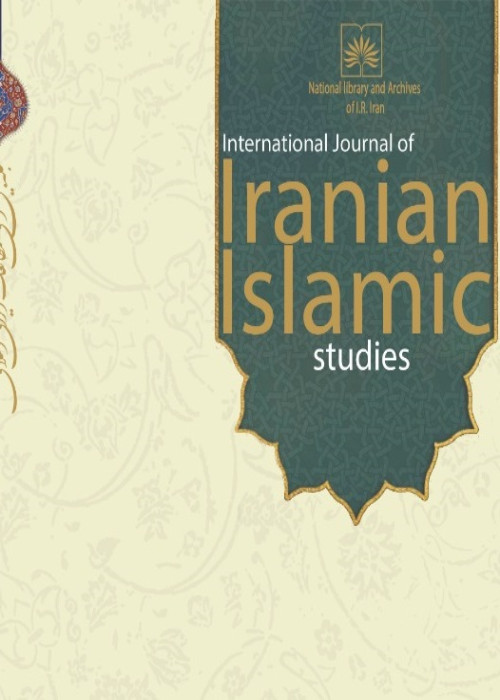The Religion in the old Avesta in the Opinions of Belgian Iranologist, Jean Kellens
Author(s):
Article Type:
Research/Original Article (بدون رتبه معتبر)
Abstract:
Jean Kellens, a Belgian Iranian study, is one of the famous researchers in the field of Avestan studies and Indo-Iranian languages and religions, who has researched in this field for nearly sixty years of his life and has written more than two hundred works. L’exégèse du sacrifice comme principe unitaire de l’Avesta (2015) and Études avestiques et mazdéennes volumes 4 and 5 (2011 and 2013) are his most recent works. Deep knowledge, distinct and original view, and curious spirit of Kellens have caused his theories to be different from other researchers; Some researchers have criticized him a lot and others have considered him as the vanguard of knowledge and a new perspective in this field. This article, with a descriptive method, studies Kellens’ opinions about the old Avestan religion, the Achaemenian religion, Resurrection in Gāhān, special names in Gāhān and the singer of Gāhān. Studies show that according to Kellens, religion in Gāhān is unknown; there is no evidence of Resurrection in Gāhān; Gāhān is a ritual text and not Zoroaster's poem; The proper names used are sometimes symbolic and do not refer to real characters. IntroductionJean Kellens (born on January 26, 1944 in Seraing, Belgium) is one of the famous Belgian orientalists who, in addition to PhD in the history and literature of Eastern Iran (Liège, 1973), is a professor of comparative linguistics and Indo-Iranian philology at the Université de Liège and a professor at Collège de France. Most of his researches are about Avestan and Indo-Iranian languages and religions. In Iran, Kellens’ opinions are less known. The first book of Kellens was translated by Ahmadreza Ghaem Maghami with the title of Essays on zarathustra and zoroastrianism. This article includes Kellens’ comments about the old Avestan religion, the Achaemenid religion, Resurrection in Gāhān, the Avestan script, the difference between Gāhān and Yasn-e Hafthā (in Avestā: Haptaŋhāiti). Materials & MethodsIn a review-descriptive method this article deals with Kellens' opinions about the old Avestan religion, Achaemenid religion, resurrection in Gāhān, Avestan script and writing, the difference between Gāhān and Yasn-e Hafthā, Gāhān as a ritual writing, special names in Gāhān and the singer of Gāhān. Discussion of results & conclusionsAccording to Kellens, the Gāhānic religion is unknown: it cannot be considered polytheistic, neither monotheistic nor dualistic. Perhaps it can be considered a type of belief in unstable polytheism; The Achaemenid Zoroastrian religion was probably a religion similar to what was reflected in the New Avesta; In general, we cannot talk about the Achaemenid religion until we don’t have comprehensive information about the old Zoroastrian religion; According to his opinion, there is no evidence of resurrection after death in Gāhān; Commentators have associated many words with resurrection based on their mental assumptions; In addition, based on his linguistic studies, Gāhān is a ritual text; The use of demonstrative pronouns, and the present participle verb in it, shows that these texts were used to be read in religious rituals; In Gāhān, Goštāsp is not the king; He is probably the son of Zoroaster. Also, Gāhān is not Zoroaster's hymn, but it is the expression of the state of a religious group written to be performed in religious rituals because there is no sign of inviting people to convert to religion. In addition, Zoroaster speaks of himself in the first person only once in Gāhān, and throughout this text, his name appears many times in the nominative case, which indicates that the composer was someone else.
Keywords:
Jean Kellens , Religion , Old Avestan , Gāhān , Yasnā , Resurrection , Zoroaster
Language:
Persian
Published:
Journal of Iranian Islamic Studies, Volume:12 Issue: 3, 2022
Pages:
62 to 83
magiran.com/p2622100
دانلود و مطالعه متن این مقاله با یکی از روشهای زیر امکان پذیر است:
اشتراک شخصی
با عضویت و پرداخت آنلاین حق اشتراک یکساله به مبلغ 1,390,000ريال میتوانید 70 عنوان مطلب دانلود کنید!
اشتراک سازمانی
به کتابخانه دانشگاه یا محل کار خود پیشنهاد کنید تا اشتراک سازمانی این پایگاه را برای دسترسی نامحدود همه کاربران به متن مطالب تهیه نمایند!
توجه!
- حق عضویت دریافتی صرف حمایت از نشریات عضو و نگهداری، تکمیل و توسعه مگیران میشود.
- پرداخت حق اشتراک و دانلود مقالات اجازه بازنشر آن در سایر رسانههای چاپی و دیجیتال را به کاربر نمیدهد.
In order to view content subscription is required
Personal subscription
Subscribe magiran.com for 70 € euros via PayPal and download 70 articles during a year.
Organization subscription
Please contact us to subscribe your university or library for unlimited access!


